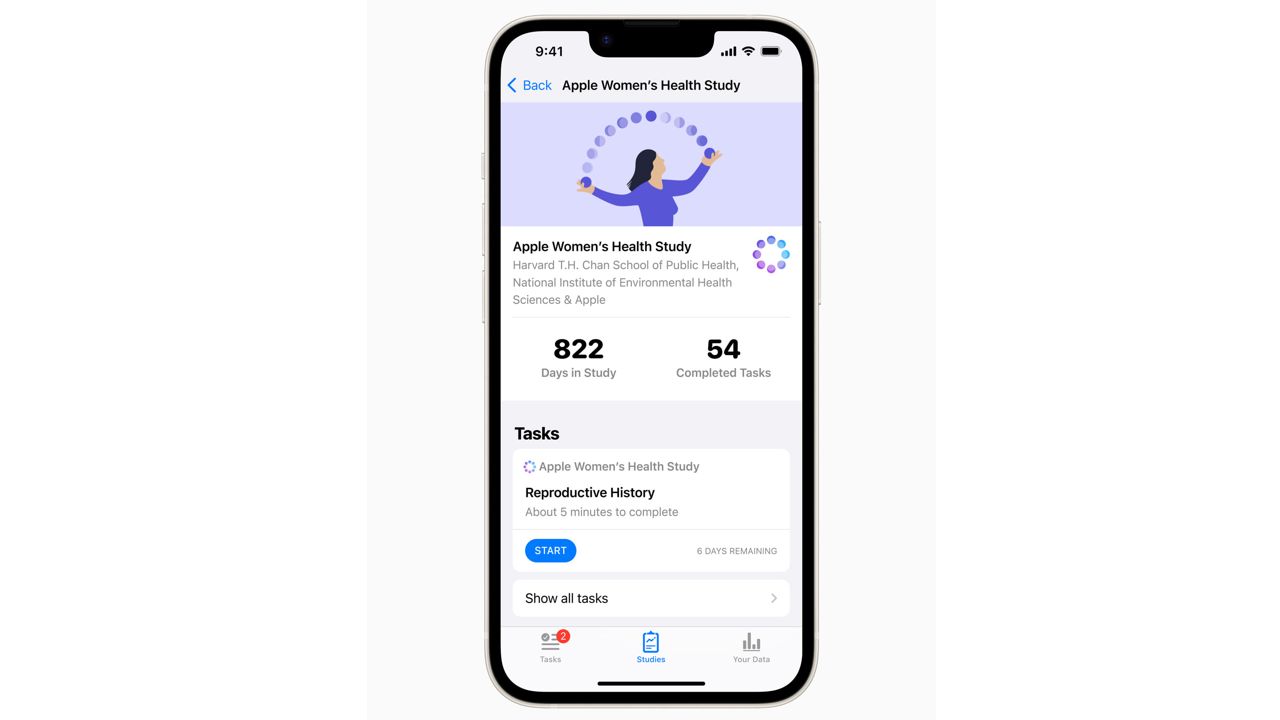
To celebrate the International Women’s Day of March 8, Apple shared the results of its Women’s Health Studyfocused on the results of research carried out via iPhone and Apple Watch in relation to menstrual cycles.
According to Apple, studies on the menstrual cycle are currently still “significantly underestimated”, since, although even doctors affirm the importance of keeping an eye on the health of the menstrual cycle, at present there are still no prominent focuses focused on the topic.
Therefore, the Women’s Health Study stands as a “first-of-its-kind research study” on which Apple is working closely with both theHarvard T.H. Chan School of Public Health both with the National Institute of Environmental Health Sciences (NIEHS), aiming to advance understanding of the menstrual cycle and how it relates to various health conditions such as polycystic ovary syndrome, infertility, and the menopausal transition.
“There is a need for greater awareness of menstrual cycle physiology and the impact of irregular periods and PCOS on uterine health,” said the Dr. Shruthi Mahalingiahassistant professor atHarvard Chan School and co-principal investigator of theApple Women’s Health Study.
“This analysis highlights the importance of talking to a healthcare professional when menstruation is experiencing persistent changes in their period that extend over many months. Over time we hope our research will lead to new strategies to reduce disease risk and improve health across the lifespan.”
Using the results of the Apple Women’s Health Study survey, researchers at the Harvard Chan School analyzed data from more than 50,000 participants, including:
For those interested in keeping an eye on the monitoring of their menstrual cycle, all they have to do is open the app Salute on iPhone or Apple Watch and select Cycle Tracking.
For more information on the Apple study, click here.
George Miller has shared some details on a new prequel linked to the historic post-apocalyptic…
All self-respecting video game lovers know the God Of War saga, but do you know…
The next OnePlus Ace 3 Pro could be equipped with the Snapdragon 8 Gen 3…
The Bolognese driver Andrea Kimi Antonelli will turn 18 at the end of August and…
Airbnb he just launched Iconsa new category of extraordinary experiences offered by biggest names in…
The big match of the day closes on Sunday, given that the evening match will…